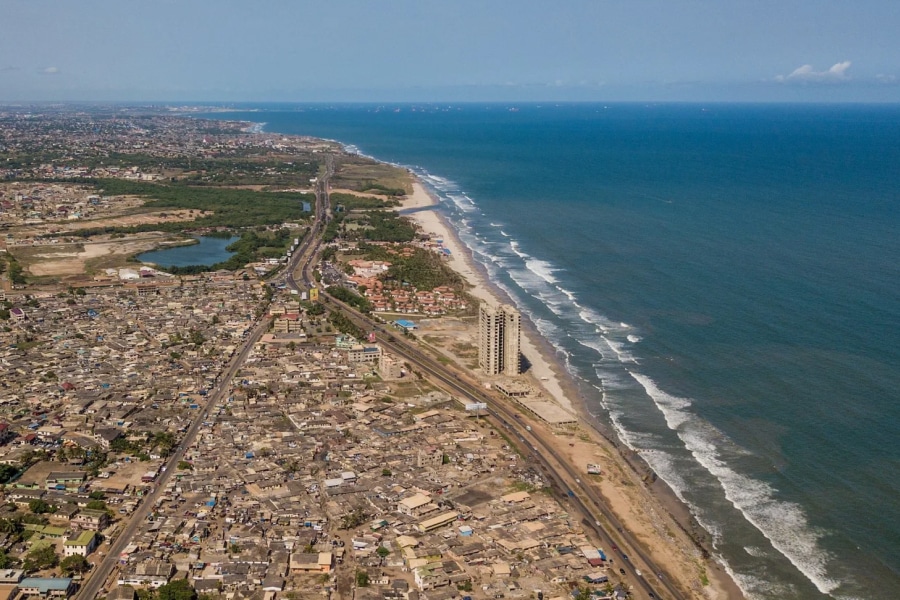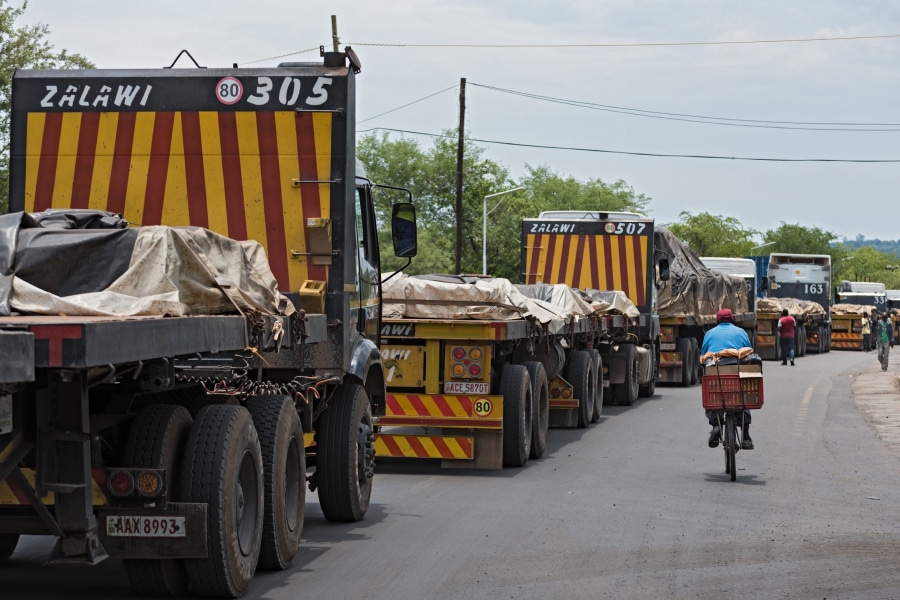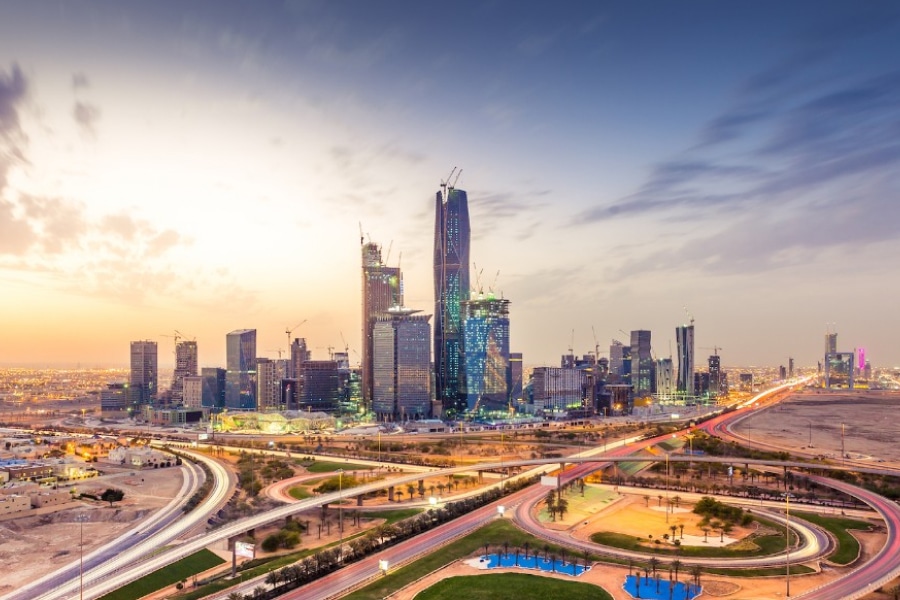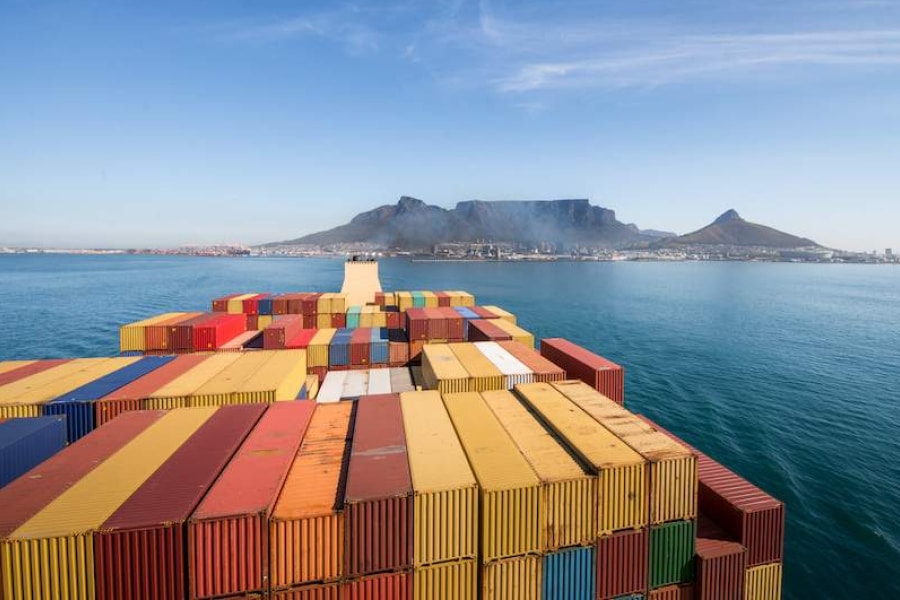As a logistics hub for the World Food Program, the West African nation of Ghana has attracted attention in areas that support the movement of goods. Warehousing in Ghana has benefited from associated investments from private business as well as public-private partnerships.
With a population of more than 31 million, Ghana ranks as one of the fastest-growing economies in Africa, according to the World Bank’s Logistics Performance Index. Located just north of the equator in West Africa, Ghana’s coast runs 328 miles along the Atlantic Ocean, providing easy access to global shipping lanes.
Ghana channels its exports through two principal seaports on the Gulf of Guinea, which is an embayment of the Atlantic. Tema is located fifteen miles east of the capital city of Accra. Takoradi is in the other direction, about 113 miles west of Accra. In addition, Ghana has four international airports, including Accra’s Kotoka International Airport.
While the COVID-19 pandemic has disrupted economic activity in Ghana and worldwide, it also has forced African nations to find innovative solutions for trade. The continent is undergoing rapid change. After a six-month delay due to the pandemic, the African Continental Free Trade Area (AfCFTA), headquartered in Accra, launched in January 2021.
AfCFTA created the largest free-trade area since the formation of the World Trade Organization. Africa’s 1.2 billion people and combined gross domestic product of $3 trillion now create a single market for goods and services. Aspects of AfCFTA include reductions in tariffs, the free movement of people, and the emergence of new trade routes.
The signatory countries expect AfCFTA to boost trade within Africa and promote industrialization. Like other African governments, the Ghanaian government is determined to drive investment into its logistics infrastructure to support the emerging continental market. This includes improvements to ports, road systems, and warehousing in Ghana.
Benefits to renting warehouse space in Ghana
Several government initiatives have spurred the development of logistics in Ghana since the 1990s.
Investment incentives
To promote real estate investing in Ghana, the government passed the Ghana Investment Promotion Centre Act in 1994. The act established a government agency (the Ghana Investment Promotion Centre) specifically for encouraging and promoting investments in Ghana. In particular, the agency seeks to provide a transparent and attractive investment environment by facilitating the following:
- An investor registration process
- Work and residence permits for employees
- Import duty exemptions for machinery
- The acquisition of permits and approvals
Free zones
In 1995 the Ghanaian parliament passed the Free Zone Act, which established the Ghana Free Zones Authority (GFZA). The GFZA regulates certain special areas within which companies can produce, receive, and store goods without paying customs duties. In addition, real estate developers receive an exemption from property tax for their first eight years of operations.
The World Bank has recognized Ghana’s efforts. Its report Doing Business 2019: Training for Reform noted the following improvements:
- Easing trade across borders: Ghana has improved electronic document processing and submission for imports. Also, it has enhanced customs administration and inspections for imports and exports.
- Strengthening construction quality control: Ghana has imposed stricter qualification requirements for professionals in charge of inspections.
Location
By virtue of its location, cargo and travelers in Accra can reach Europe or the Americas by air in around eight hours. In addition, Ghana has an underdeveloped inland water transport system with great potential. Lake Volta winds 250 miles past important Ghanaian towns and connects to the Atlantic Ocean. Despite numerous constraints that affect industrial development, cargo ferries and barges carry an estimated 255,000 tons of products every year.
Furthermore, the Ghana Shippers’ Authority (GSA) has completed feasibility studies for warehousing projects at Buipe, a town in northern Ghana. Buipe sits on an inlet of Lake Volta. The GSA hopes to make use of its location to provide warehousing facilities to shippers, especially those from landlocked countries.
New terminals
Ghana has undertaken additional projects to attract logistics providers. For example, in 2016 the Ghana Airport Cargo Center (GACC) opened at Kotoka International Airport in Accra. A public-private partnership funded the 10,000 square meter (108,000 square foot) warehouse. The GACC features high-speed internet as well as solar water heaters and an in-house water filtration plant. The warehouse also has LED lighting and panoramic lifts for handling air freight and other cargo.
In addition, the Ghana Ports and Harbour Authority, a container terminal operating company, and a French logistics firm partnered on a new container terminal in Tema. The $1.5 billion investment increases the access of Ghana to the global trade market.
Infrastructure investment
An additional project focuses on expanding the road between Accra and Tema to a six-lane modern highway. The project is a collaboration between an international container terminal operating company, the government of Ghana, and a nonprofit road safety organization. The project also will improve connecting roads and access points between Tema and inland destinations.
e-Commerce
A report by the McKinsey Global Institute indicates e-commerce activity in Africa could reach $75 billion by 2025. The report designates Ghana as an “emerging” nation in terms of its internet economy and foundations for future performance.
The expansion of e-commerce depends on the availability of warehouses that meet international standards. According to the World Economic Forum, e-commerce logistics requires four times the warehouse capacity of a traditional fulfillment model.
Improvements to warehousing space in Ghana
For years, African countries relied on “godowns” for the storage of goods. A godown functions as a sort of makeshift warehouse that a retailer may use to store its own goods. Godowns lack certain basic features that meet international standards, such as reliable power, internet connectivity, security and protection from weather and the elements.
But as the Ghanaian government recognizes the importance of upgrading infrastructure, it has emphasized simplifying the development of commercial property.
Procedure simplification
The Ghana National Single Window program allows importers and exporters to file all necessary documentation in one place. Previously, a tangled web of paperwork contributed to inefficiencies in logistics management. Centralizing these requirements into one online repository simplifies the process for a logistics company seeking to operate in Ghana.
Warehouse certification
In 2019, the Ghana Commodity Exchange (GCX) launched a program to promote the use of warehouse receipts for trading and financing. After a farmer stores goods in a warehouse, the GCX produces an electronic receipt. The farmer may then use the receipt as collateral to secure a loan or as a commodity for trade.
Warehouse receipt finance has underpinned development of several countries in Africa, most notably Ethiopia, South Africa, and Tanzania. The GCX hopes to see similar growth in Ghana, where agriculture is a key sector of the Ghanaian economy. Agriculture accounts for up to 20 percent of the gross domestic product and 60 percent of employment, according to Ghana Talks Business.
The government of Ghana owns the GCX and provided the setup capital for the warehouse program. The GCX trades contracts for immediate delivery of white maize, yellow maize, sesame, sorghum, and soya bean through several warehouses.
The Ghana Grains Council, an industry association supporting the grains industry in West Africa, lists twelve GCX certified warehouses throughout the country. It also lists twenty-two community warehouses still operating under manual warehouse receipt.
Waste reduction through warehousing in Ghana
The government of Ghana has been working to establish itself as an important gateway to the West African market. Ghana Vision 2020 was the government’s economic plan to promote the flow of foreign capital into Ghana and provide international-quality infrastructure services.
Perishable goods
Globally, about one-third of food gets lost or wasted, according to the Food and Agriculture Organization of the United Nations. In Africa, poorly managed storage contributes to much of this loss.
To reduce waste, modern warehouse facilities in Ghana utilize temperature regulation as well as pest control and security measures. In addition, consolidating warehousing for commodities and agriculture allows local processing to take place in facilities used for storage.
For example, an aviation company developed the Air Ghana Perishable Centre (AGPC). The AGPC has features designed for the handling of perishable cargo designated for export out of Ghana. The facility has a refrigerator measuring 165 square meters (about 1,800 square feet) that can adjust to various temperatures.
In addition, the aviation company manages a 6,000 square meter (64,500 square foot) cargo facility in Accra. The warehouse has an automated storage retrieval system that can store up to 2,800 tons of goods. The facility also has three refrigerators offering various temperature ranges, all of which have sensors and alert systems to protect perishable goods.
Support for small and medium enterprises
A Ghanaian food producer consolidated its operations into a single production location. The company used a support program for small and medium enterprises (SMEs) to move into a ready-built warehouse that meets international standards. Thanks to the SME program from Agility, the company did not have to provide financial guarantees or raise capital. It moved into its new facility with just three months’ rent as a deposit.
Best practices for warehouse space in Ghana
In response to the COVID-19 pandemic, Agility offered free warehouse space to the World Health Organization (WHO). The WHO used Agility warehouses to stockpile medical supplies and the COVID-19 vaccine in Ghana and its other centers.
Setting the standard with Agility Ghana
Agility Ghana operates a forty-five-acre state-of-the-art industrial park in the Tema Free Trade Zone. The Ghana Agility Distribution Park is the first of a planned network of logistics parks Agility plans to build across Africa. The network has already expanded to include logistics parks in Mozambique, Ivory Coast and Nigeria.
Agility has a lease agreement with various types of tenants. Agility rents to multinational companies seeking to enter the market of West Africa. Also, small- and medium-sized Ghanaian companies looking to expand light manufacturing and their import-export businesses have a lease agreement. Agility is building seven more warehouses at the Ghana park, and it offers build-to-suit options for companies with specific requirements for rental property.
Sustaining environmental awareness
All Agility distribution parks meet international environmental standards. For example, the Ghana facility uses an energy-efficient roof and side-insulated panels as well as wind-driven roof fans. For lighting, it has skylights, LED and energy-saving bulbs, and solar-powered streetlights. Agility offers ecofriendly waste management services: the site recycles paper, plastic, metal, and carton waste.
Agility logistics parks also feature laydown yards. These are open spaces within the site to store a wide range of products, from vehicles and engineering components to oil and gas industry equipment. An online stock management system controls the movement of goods in and out of the laydown yards.
Agility’s laydown yards sit inside a separate fence within the Agility outer compound wall and feature constant security monitoring. In fact, all of Agility’s rental property, including the Ghana Agility Logistics Park, feature twenty-four-hour security and reliable power and connectivity. Thus Agility sets an example for quality logistics infrastructure with its warehousing in Ghana.
Investing in the labor force
Beyond the development of physical infrastructure, Agility has invested in human resources. It has developed leadership programs throughout Africa for local employees and university graduates. These programs provide training in management and skills related to logistics. Participants in the program have the opportunity to gain experience by working with Agility in Ghana and around the world.
Contact Agility to find out more about the Ghana Agility Logistics Park. Find out how the logistics hubs that Agility is building across the continent can help your company with a logistics infrastructure that meets or bests international standards.
Quick Links
- Benefits to renting warehouse space in Ghana
- Improvements to warehousing space in Ghana
- Waste reduction through warehousing in Ghana
- Best practices for warehouse space in Ghana





